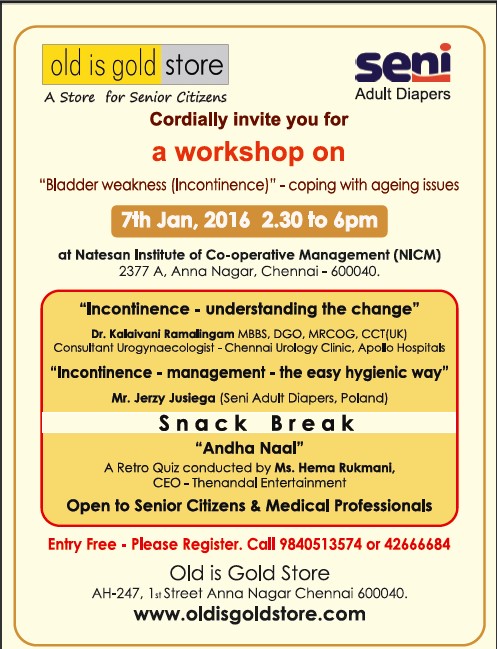
 A recent study shows that people become more trusting as they age. While there are a lot of positives associated with this increased trust, this can also lead to an increase in gullibility among the elders.
A recent study shows that people become more trusting as they age. While there are a lot of positives associated with this increased trust, this can also lead to an increase in gullibility among the elders.
Recent news items show how some people are taking advantage of the trusting nature of elders. Just recently, a senior citizen in Mumbai lost Rs. 40,000/- because he trusted a person while using an ATM machine. This is by no means an isolated incident. There are quite a number of such incidents happening every month – and these are just the reported incidents.
Here are a few things to remember while using your ATM/Debit card. We hope you will follow these suggestions and remain safe.
- Do not give your ATM/Debit card to anyone else.
2.Do not give your ATM/Debit card PIN to anyone else.
If you think nobody does that, you are sadly mistaken. We see countless people who go to a shop, give their debit card and then loudly read out the PIN for the cashier to enter it into the credit card machine. What’s more, we even know an elderly lady who has given her card and PIN number to the neighborhood Kirana store owner so that along with provisions he can bring her some cash also, from time to time!
- Do not write down your PIN anywhere that is easily accessible by others.
Since you are able to choose your 4-digit PIN, use a number that you are unlikely to forget. Typically, many memories from our childhood do not fade away. Use some of that to generate your PIN. That way, you will always remember it and it will be very difficult for others to guess it.
Some options you could use are:
A. The first 4 digits of your first phone number.
B. The school/college ID number
C. A part of your first-born’s birth date, or your grand-child’s birth date.
D. A part of your wedding date.
E. A part of your spouse’s birth date.
- Where you have a choice, use an ATM that is within a bank. There is always better security inside a bank.
5.Do not let anyone near you when you are using the ATM. If somebody is crowding you, leave and come back later.
6. Stand close to the ATM machine while punching in the PIN so that no one can peer over your shoulders and note your PIN.
7. Remember to take your card out of the machine as soon as you are done. Press the cancel button once after you have finished your work and ensure that the screen comes back to its original state.
8. If a receipt is getting printed, make sure you take it. You can tear it a few times and discard it in a bin far away from the ATM.
9. If you are withdrawing cash, please count and ensure that you have got the right amount and then put the money safely into your pocket or purse before leaving the ATM.
10. Finally, if you lose your card or fear that someone has found out your PIN contact the bank immediately and report your card lost.
Stay safe!
 We were covered by ET yesterday. An brief extract follows. The link to the original article is at the end of the post.
We were covered by ET yesterday. An brief extract follows. The link to the original article is at the end of the post.
For years they watched as dejected seniors and stroke victims reached out to buy ungainly hospital gowns and unshapely nighties, simply because there was nothing else to wear. So a few weeks ago the founders of Old Is Gold Store decided to spin their own brand of Cocoon adaptive clothing for those with limited mobility. “The idea behind Cocoon is as much to comfort as it is to liberate, says Sanjay Dattatri, director of Old is Gold Store, which caters primarily to the needs of senior citizens. “Just because you are unwell does not mean you have to dress down. Wearing good clothes will make anyone in recovery feel better and that’s what we want to do,” he says.
The first line of adaptive clothing from Cocoon was cotton shirts for men and now that it has become a hit Dattatri says they are expanding the line to include kurtis, readymade sarees, Velcro veshtis and dhotis. “All Cocoon clothing uses Velcro instead of buttons or zippers to make them easy to wear,” he adds.
Customers include everyone from the elderly to those on wheelchairs to people recovering from a stroke. “We are among the few stores in India that retails such clothing,” he says.
Dattatri isn’t far off the mark. Despite the demand in India for adaptive clothing, there are hardly any designers or stores in the country that cater to the segment. In Chennai, apart from Old is Gold, those with disabilities say the choice is limited to customising clothes through tailors…
To read more go here.
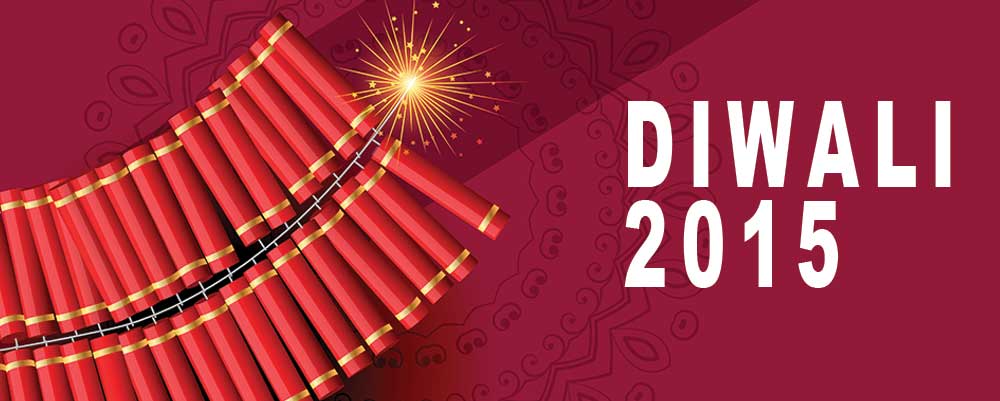 Diwali is fast approaching. While this is a joyous festival, for many of our elders, this is a time of great trepidation.
Diwali is fast approaching. While this is a joyous festival, for many of our elders, this is a time of great trepidation.
After all, Diwali is inextricably entwined with fireworks, and this means heightened levels of pollution that can lead to breathing difficulties and chest infections. For people with weakened immunity, having asthma or chronic obstructive pulmonary disease (COPD), Diwali can be extremely taxing.
So here are a few things you can do to protect yourself and your dear ones from the pollution:
1. Avoid going out
2.If possible stay inside an air-conditioned room. Ensure that the air-conditioner’s inlet vent is in closed position, so that it does not suck in outside air but keeps the same room air circulating. Most air-conditioners have a setting for this.
3.Wear a mask. A N95 approved particulate respirator maskthat covers the nose and mouth should do the trick. All the toxic particles released by bursting firecrackers will be blocked by this mask ensuring that none of it enters your lungs.
4.If you suffer from asthma or bronchitis, make sure you have your inhalers and medication ready and with you at all times.
5.If noise is an issue, get earplugs. Disposable soft earplugs that are gentle on the ears are available.
6.If you wear hearing aids, this may be a good time to remove them or switch them off. [At least when you are at home and in a safe environment].
7.Take all your regular medicines without fail.
8.Drink plenty of fluids
9.Encourage family, especially children, to reduce quantum of purchase of fireworks
Call your doctor immediately if:
You have shortness of breath or wheezing that is rapidly getting worse.
You are coughing more deeply or more frequently, especially if you notice an increase in mucus (sputum) or a change in the color of the mucus you cough up.
You cough up blood.
You have increased swelling in your legs or abdomen.
You have a high fever (over 100 degrees).
You feel severe chest pain.
You develop flu symptoms.
You notice that your medicine is not working as well as it had been.
You use oxygen at home and feel like you need more. Use only the amount
recommended by your doctor. In some people with COPD, too much oxygen can
be dangerous.
Here’s wishing you a happy and healthy Diwali! To buy the mask please visit our site.
The Senior Citizens Group of Besant Nagar has chosen Old is Gold Store as a recipient of the Service Excellence Award.
Their invite is attached below
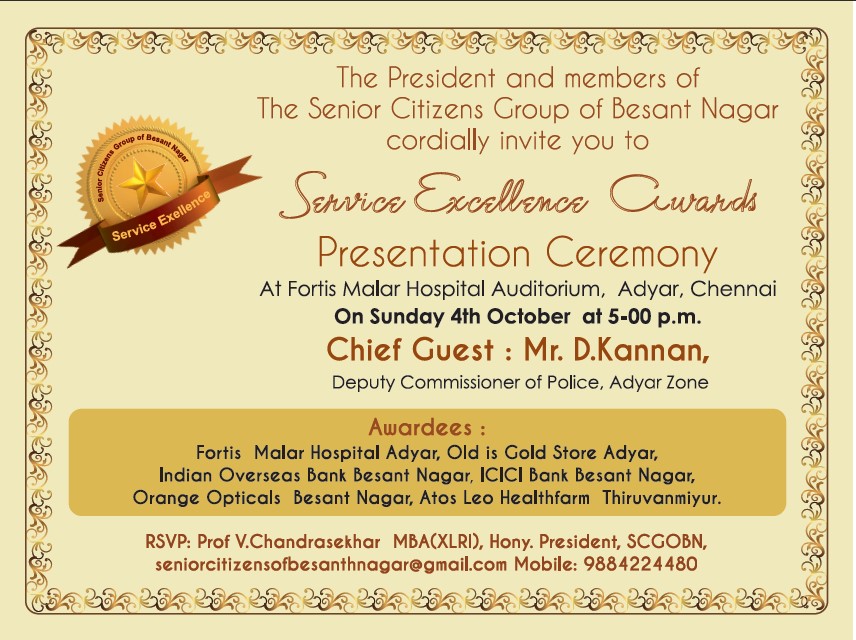
Here is a video I found on the net on how to age gracefully.
At the end of the day, do what you want to do, after all nobody knows what the hell they are doing!
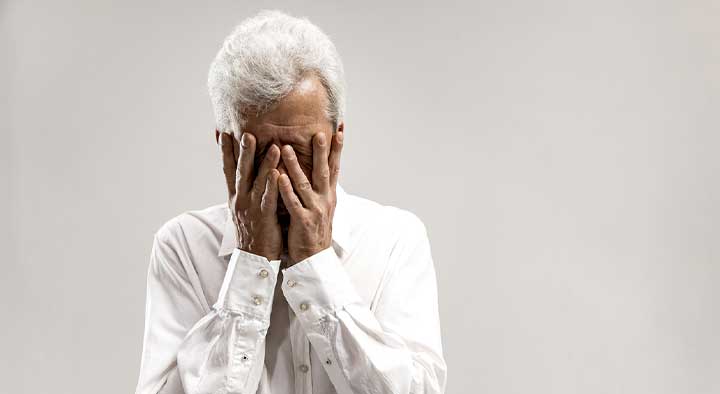 The city may soon get a 24-hour helpline for senior citizens in an initiative taken up by Young Men’s Christian Association (YMCA), in association with Sneha Sandhya and HelpAge India.
The city may soon get a 24-hour helpline for senior citizens in an initiative taken up by Young Men’s Christian Association (YMCA), in association with Sneha Sandhya and HelpAge India.
The helpline at the YMCA, a first-of-its-kind initiative in the city, will provide medical assistance and emotional support for senior citizens. “We have discussed the issues raised by senior citizens with the YMCA management, who have shown their eagerness to come up with the much-needed helpline. The facility will be launched by the end of the month,” Ch. Venkat Rao, secretary of Sneha Sandhya, told The Hindu .
Sneha Sandhya, which has a membership base of over 500 senior citizens, is also planning to establish a day-care centre for the elderly. “We have approached government officials to look for a suitable land to build the facility. With growing issues concerning senior citizens, geriatric support systems are the need of the hour,” Mr. Rao said.
At present, Sneha Sandhya has a centre at Prema Samajam, where it offers yoga training and free medical check-up.
The HUG bridge
At a time when there is a severe disconnect between the youth and senior citizens, HelpAge India, Sneha Sandhya, AU-NCSA Centre for Gerontology, and AU Department of Social Work have joined hands to come up with a novel programme called HUG or ‘Help Unite Generations’.
As part of this, a sensitisation programme will be held at AU Platinum Jubilee Guest House on July 25 involving the youth and senior citizens.
“The programme will facilitate an interactive platform between youth and senior citizens, where the elderly can explain their expectations from the younger generations and the problems they are facing. Similarly, the youth can come up with views and suggestions to address those,” Mr Rao said.
According to a recent HelpAge India survey for ‘Elder Abuse: The Indian Youth Speaks Out’, of the 2,000 youths, including women, surveyed, 73 per cent accepted that elder abuse existed in society. However, only 4.6 per cent of them intended to report such cases to the police. Even lesser, 1.1 per cent, wanted to approach an NGO and 15.6 per cent wanted to intervene and speak to the elder about fighting abuse.
Read the full article here.
( https://www.thehindu.com/news/cities/Visakhapatnam/help-at-hand-for-the-elderly/article7459558.ece )
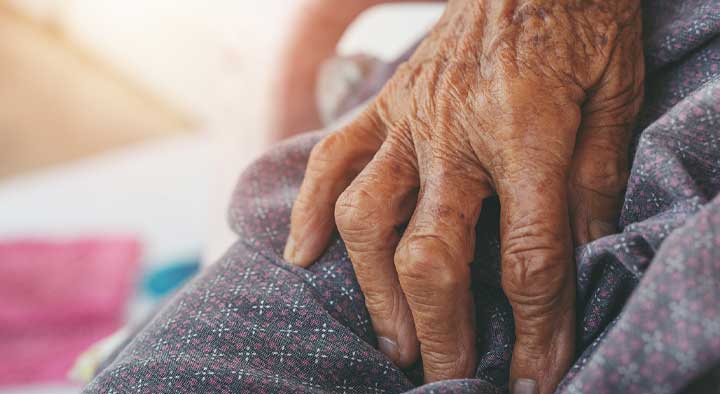 As per the ‘State of India’s Elderly-2014’ report by HelpAge India, the country has 100 million elderly and by 2050 the figure is likely to triple to 324 million.
As per the ‘State of India’s Elderly-2014’ report by HelpAge India, the country has 100 million elderly and by 2050 the figure is likely to triple to 324 million.
“But there are not enough dependable community support systems matching this growth,” said Mathew Cherian, Chief Executive Officer of HelpAge.
Justice Leila Seth, Chief Guest at the occasion, said “neglect, poverty and isolation” were the major issues affecting the elderly people.
“The elderly population is subjected to neglect and isolation. Losing one’s dignity can harm you more than ageing. Lack of love can be a bigger evil than lack of laws to protect you.
“Though elderly continue to face troubles across various strata, the problem worsens when poverty is thrown in,” she said.
The report also talked about the need for an effective pension system. “We have been fighting to regulate the pension system nationally with the introduction of universal pension, but it is a long road ahead vis a vis implementation,” said Cherian.
“We have approached Finance Minister Arun Jaitley for the budgetary support to the segment ahead of the Budget Session,” he said.
The report states that the ongoing National Programme for Health Care for Elderly is being implemented in only 13 out of the around 600 districts of the country.
Read the original article here.
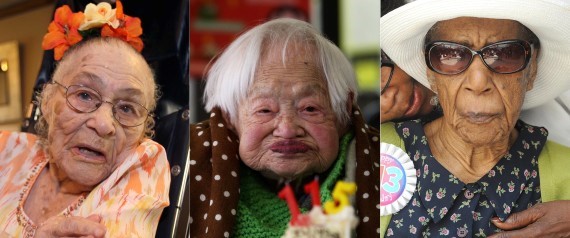
We can all agree that it’s a great feat to live to be 100 — but it’s an even greater feat if you live well, well past it. Believe it or not, the five oldest people in the world today were all born in the 1800s! These supercentenarians, as they’re called, have lived through world wars, the sinking of the Titanic, the space race and much much more.
Read the original article here.
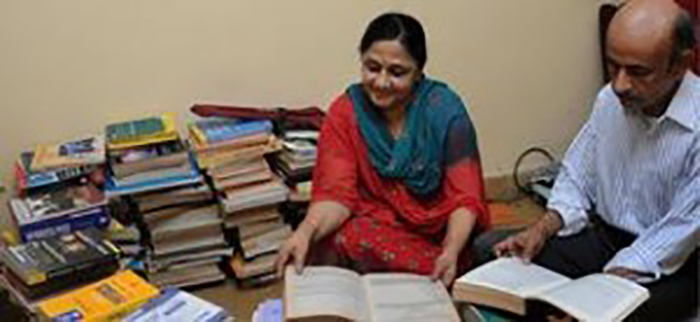
In a role reversal, a few seniors in Besant Nagar are caring for youngsters. L. KANTHIMATHI on their initiatives in The Hindu.
We tend to picture senior citizens as helpless and leaning heavily on others. And therefore, we are surprised when we see them serve people considerably younger than themselves.
And I should admit I was more than surprised to discover such a group of seniors in Besant Nagar.
Senior Citizens Group of Besant Nagar, founded in 2012, collects and distributes books to college students. Chandrasekhar, honorary president of the forum, says, “We sent a press release about our initiative to neighbourhood tabloids and made a few calls — that’s all it took to get started. Many came forward to donate their books. Many students from families with low incomes came to receive these free books.”
To read more go here.